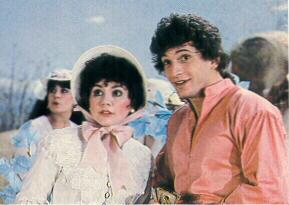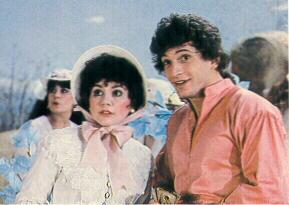This week’s releases include two films different in tone and style but both about the same time-honored subject of teenagers and sex. Every generation of teens thinks it invented sex and every generation of novelists and film-makers finds some new way to address one of the most significant moments in coming of age. “The Virginity Hit” and “Easy A” are both teen sex comedies set in affluent suburban communities with affectionate parents who are permissive to the point of being ineffectual (curiously, both families have adopted children). Both movies assume and portray an omni-networked community with technology deployed to make the most intimate details of everyone’s life and everyone’s responses to those details instantly and publicly available.
In a way, this is the update of the famous opening scenes in movies like “Bye Bye Birdie” and “Grease,” where news about going steady or a summer romance are transmitted with very different focus from the sexes via those predecessors to Twitter: the phone and actual in-person communication.
While the theme of teen sex and romance is eternal, the specifics in these new films are very contemporary, even emblematic of the age of social networking, texting, and YouTube. While individual sexual experiences continue to produce anxiety and intense emotion, the overall portrayal of sex and especially the all-but universal awareness of and involvement in each other’s sex lives is very different from earlier films. But in a more fundamental sense, the two movies are downright old-fashioned. They exemplify the double standard. Even in this casual world free from judgment in many respects, sex is seen very differently from the perspective of a boy and the people around him than from the perspective of a girl and the people around her.
“The Virginity Hit” is the story of a boy who is the last of his group of friends to have sex. The title refers to a tradition for observing — sometimes literally — this rite of passage; when one of the group has sex for the first time, they bring out a special bong shaped like a naked woman and smoke marijuana while they discuss all of the details. (Yes, I know, heartwarming.) Matt is the only one left but he has high hopes; his girlfriend of two years is willing and he has made plans for a special night.
In the world of this movie, sex is always a triumph for the boy and always a group bonding experience to be shared without restriction or inhibition. Indeed (and this is not unprecedented in movies of this genre) it feels as though the real act of consummation is the sharing; the sex itself is just the means to that end.
The medium is a part of the message in “The Virginity Hit,” which is shot as though it is a documentary. The other film opening this week is the more traditional “Easy A” in both style and content. It, too, is the story of a widely shared story of a teen sexual encounter. In this case, however, the main character is a girl, the encounter is fictitious, and her reputation is ruined. Emma Stone plays a girl who falsely tells her best friend she has had sex with a college boy just to appear interesting and important. And then she pretends to have sex with a closeted gay classmate to protect his reputation as a “manly” man, with pretty much the whole school listening at the door. No celebratory bong hit for her — she just becomes the talk of the school and the subject of open censure from the chastity club. She also, inexplicably and completely out of character, accepts payment for her pretend sexual encounters.
“The Virginity Hit” portrays sex from a male perspective. It is about conquest and masculinity and the other person does not really matter (there are three possible prospects he goes after in the course of the film). “Easy A” is the sadder but wiser tale from the girl’s side, told to us as explanation and apology. Like “Virginity Hit,” it is written and directed by men. And it continues a tradition going back to “Where the Boys Are” and even “The Scarlet Letter” referred to in the title of assuming that girls who have sex are branded forever as tramps, even, in this case, when the sex is faked.
I’d love to see the movie Stone’s wise and witty character would write and direct. In the meantime, parents of teenagers who see or hear about these films might want to try to get them to talk about the risks of the over-share and the even bigger risks of the over-judge.
 February 29 (Leap Day) comes only once every four years, a calendrical adjustment that is of the utmost importance in Gilbert and Sullivan’s The Pirates of Penzance
February 29 (Leap Day) comes only once every four years, a calendrical adjustment that is of the utmost importance in Gilbert and Sullivan’s The Pirates of Penzance. It seems that Frederic, mistakenly apprenticed to pirates (his hard-of-hearing nurse misunderstood when his parents told her to take him to be apprenticed to pilots), is pleased to be out of his indentures when he turns 21. But then it turns out that while he has lived 21 years, because he was born on Leap Day, he has only celebrated his 4th birthday.
.

